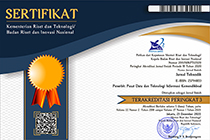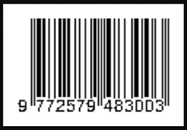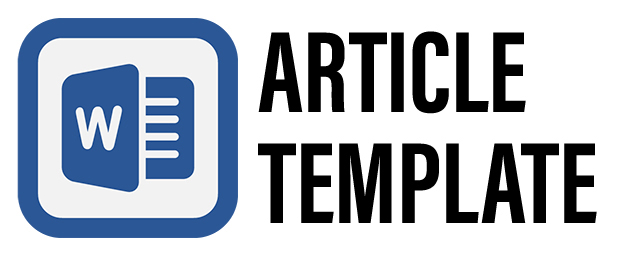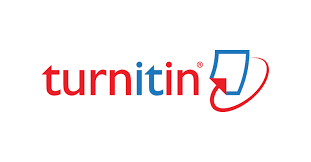The Development of Microsoft Sway-based Digital Teaching Materials for 5 Graders in Pucakwangi Sub-district
DOI:
https://doi.org/10.32550/teknodik.vi.1007Keywords:
Microsoft Sway, teaching materials, thematic digitalAbstract
This research is based on the need for teaching materials that can be used in online learning effectively. The teaching materials needed are the ones that can display various content such as texts, images, sounds, and videos. Students can use the teaching materials anytime and anywhere. The research objectives are: 1) to describe the development design of Microsoft Sway-based digital thematic teaching materials for the 5th grader in Pucakwangi Subdistrict; 2) to describe the feasibility level of Microsoft Sway-based digital thematic teaching materials for the 5th grader in Pucakwangi Sub-district; and 3) to describe the effectiveness of Sway-based digital thematic teaching materials for the 5th grade in Pucakwangi Sub-district. This research is a research and development (R&D) research with ADDIE method (Analysis, Design, Development, Implementation, Evaluation). The result shows that the recapitulation of the media expert validation reaches 95.29% with the category of very feasible, while the result of the content expert recapitulation reaches a percentage of 90.66% with the category of very feasible. The data indicates that Microsoft Sway-based digital thematic teaching materials are feasible to use for learning in Pucakwangi Sub-district. The averages of students’ learning results before using Microsoft Sway-based digital thematic teaching materials in SDN Pucakwangi 01, SDN Pucakwangi 02, and SDN Pucakwangi 03 are 74,54; 73,67; and 74,70. After using Microsoft Sway-based digital thematic teaching materials, their average scores are consecutively 87,73; 88,33; dan 89,70. The results showed a significant difference between learning outcomes before and after using Microsoft Swaybased digital thematic teaching materials in elementary schools in the sub-district of Pucakwangi.
References
Alperi, Muzanip. (2019). Peran Bahan Ajar Digital Sigil dalam Mempersiapkan Kemandirian Belajar Peserta Didik. Jurnal Teknodik, 23(2), 99–100.
Astutik, Indah Budi dan Rukmi, Asri Susetyo. (2012). Pengembangan Handout Membaca Menulis Permulaan Berbantu Aplikasi Microsoft Office 365 Sway untuk Siswa Kelas I Sekolah Dasar. E journal Unesa, 9(2), 1–12.
Cahyadi, Rahmat Arofah Hari. (2019). Pengembangan Bahan Ajar Berbasis ADDIE Model. Halaqa: Islamic Education Journal, 3(1), 35–43.
Chabibie, Hasan M. dan Hakim, W. (2016). Pengaruh Penerimaan Teknologi dengan Kebergunaan Web: Studi Kasus Portal Rumah Belajar Kemendikbud. Jurnal UltimaComm, 8(1), 37–59.
Hernawan, Asep Herry, dkk. (2012). Pengembangan Bahan Ajar. (online). http://file.upi.edu/Direktori/FIP/JUR._KURIKULUM_DAN_TEK._PENDIDIKAN/197706132001122LAKSMI_DEWI/BAHAN_KULIAH_PBA/PENGEMBAN GAN_BAHAN_AJAR.pdf.
Huda, K. (2017). Pengembangan Media Pembelajaran IPS Sejarah melalui Aplikasi Sway Berkonten Indis di SMP Negeri 8 Madiun. Jurnal Historia, 5(2), 125–141.
Maemunah. (2018). Kebijakan Pendidikan pada Era Revolusi Industri 4.0. Prosiding Seminar Nasional Membangun Pendidikan yang Mandiri dan Berkualitas pada Era Revolusi Industri 4.0, Universitas Muhammadiyah Mataram, 29 September 2008, hlm. 1–9.
Marhaeny, Harmawanti. (2021). Profil Kemiskinan di Indonesia September 2020. Badan Pusat Statistik.
Pranata, Joni. (2021). Dampak Pandemi terhadap Kehidupan Manusia Ditinjau dari Berbagai Aspek. CV Insan Cendekia Mandiri.
Raharjo, Fanis Sofyan, Sulistyono, Roni, dan Widyastuti, Nur Sri. (2021). Penerapan Model Problem-Based Learning dan Media Sway secara Daring terhadap Motivasi Belajar Siswa pada Pembelajaran Tematik di Kelas III SD Unggulan Aisyiyah Bantul. Prosiding Pendidikan Profesi Guru. Fakultas Keguruan dan Ilmu Pendidikan Universitas Ahmad Dahlan, hlm. 1237–1251.
Sagita, Damelyana. (2016). Peran Bahan Ajar LKS untuk Meningkatkan Prestasi Belajar Matematika. Makalah disajikan dalam Seminar Nasional Pendidikan Matematika Ahmad Dahlan 2016.
Sugiyono. (2015). Metode Penelitian & Pengembangan Research and Development. Penerbit Alfabeta.
Taseman, dkk. (2018). Tantangan Pendidikan Menghadapi Era Revolusi Industri 4.0. Journal of Islamic Elementary School, 3(2), 26–32.
Wegasari, Anita., Utomo, Slamet., dan W., Sri Surachmi. (2021). Dampak Pandemi Covid-19 terhadap Proses Pembelajaran Online di SDN Cabean 3 Demak. Jurnal Penelitian, 15(1), 27–50.
Downloads
Published
How to Cite
Issue
Section
Citation Check
License

This work is licensed under a Creative Commons Attribution-NonCommercial-ShareAlike 4.0 International License.
Please download and complete the Form, Copyright Transfer, and Ethics Statement Form. The following is provided at the time of submitting the text (Upload Additional Files):










